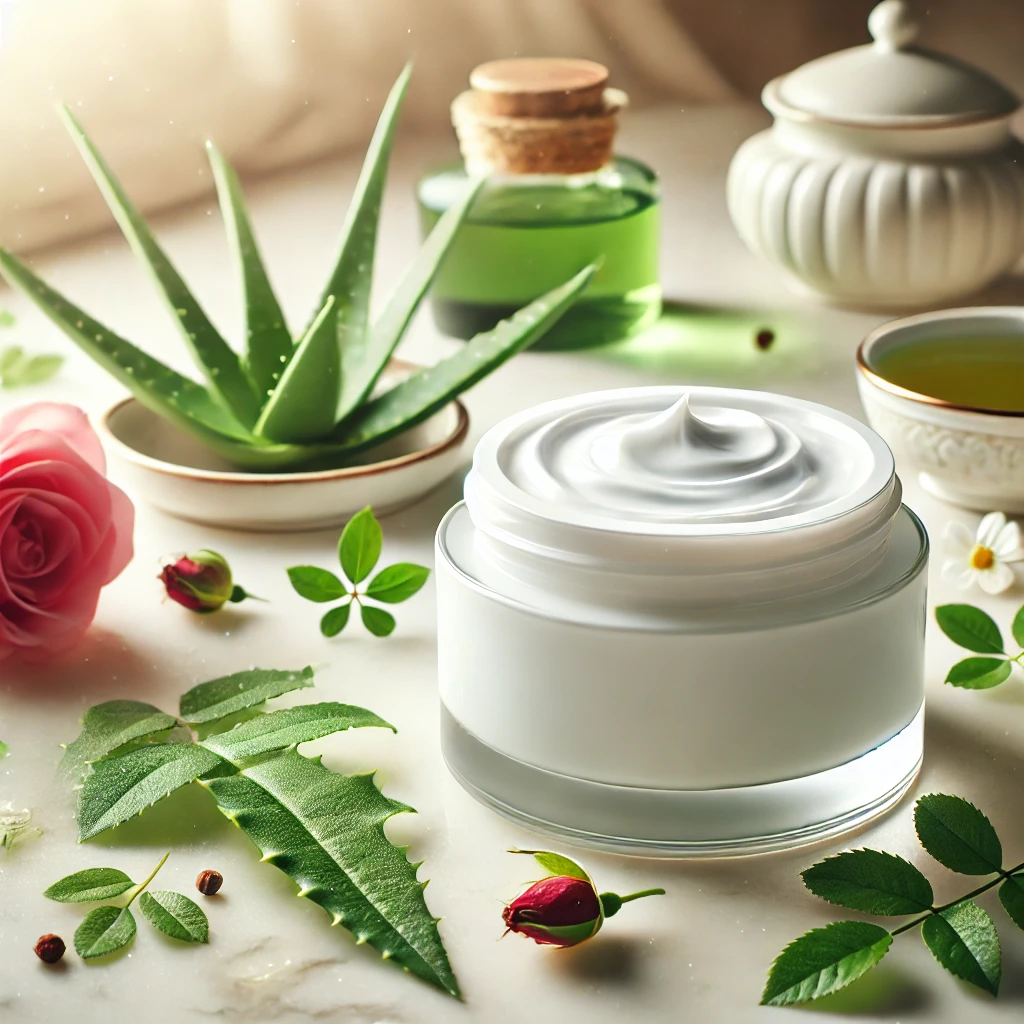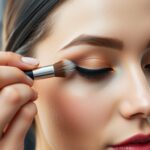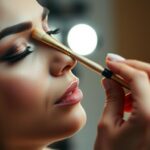Aging is a natural part of life, but who says you can’t embrace it with glowing, youthful skin? Anti-wrinkle creams have become the holy grail for many in their quest to maintain smoother, more radiant skin. But what’s the magic behind these creams, and how do you choose the best one for yourself? Let’s dive deep into the world of anti-wrinkle creams to unveil all the secrets.
Table of Contents
1. What is Anti Wrinkle Cream?
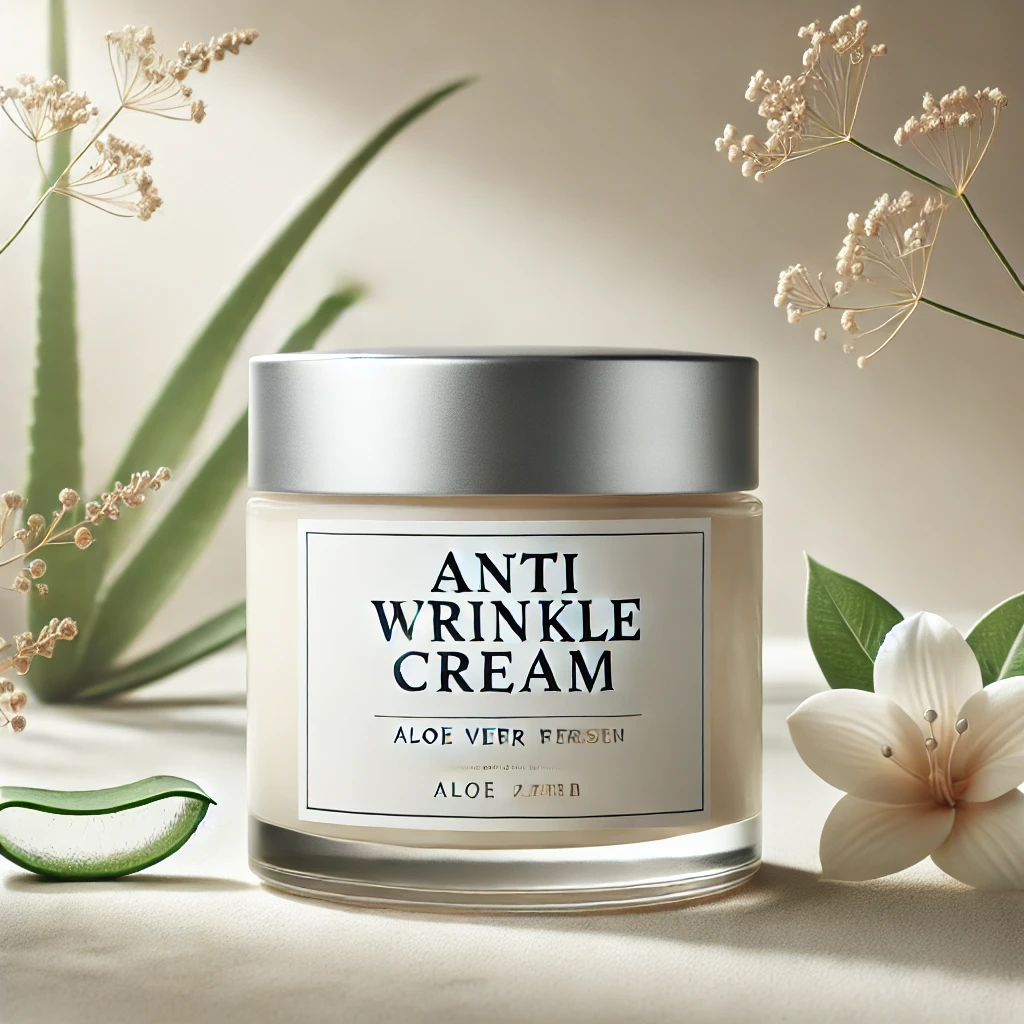
Anti-wrinkle cream is a skincare product specifically designed to combat the visible signs of aging, such as fine lines, wrinkles, and sagging skin. It often combines moisturizing, nourishing, and protective properties with active ingredients that target the root causes of aging skin. Whether you’re just starting to notice a few faint lines or dealing with deeper wrinkles, anti-wrinkle creams aim to rejuvenate and enhance your skin’s appearance.
Think of anti-wrinkle cream as a multitasking skincare companion. It not only addresses existing wrinkles but also helps prevent new ones from forming by boosting hydration and collagen production. With consistent use, the right formula can make your skin appear smoother, firmer, and more radiant, making it a staple in the fight against time’s effect on your skin.
2. How Do Wrinkles Form?
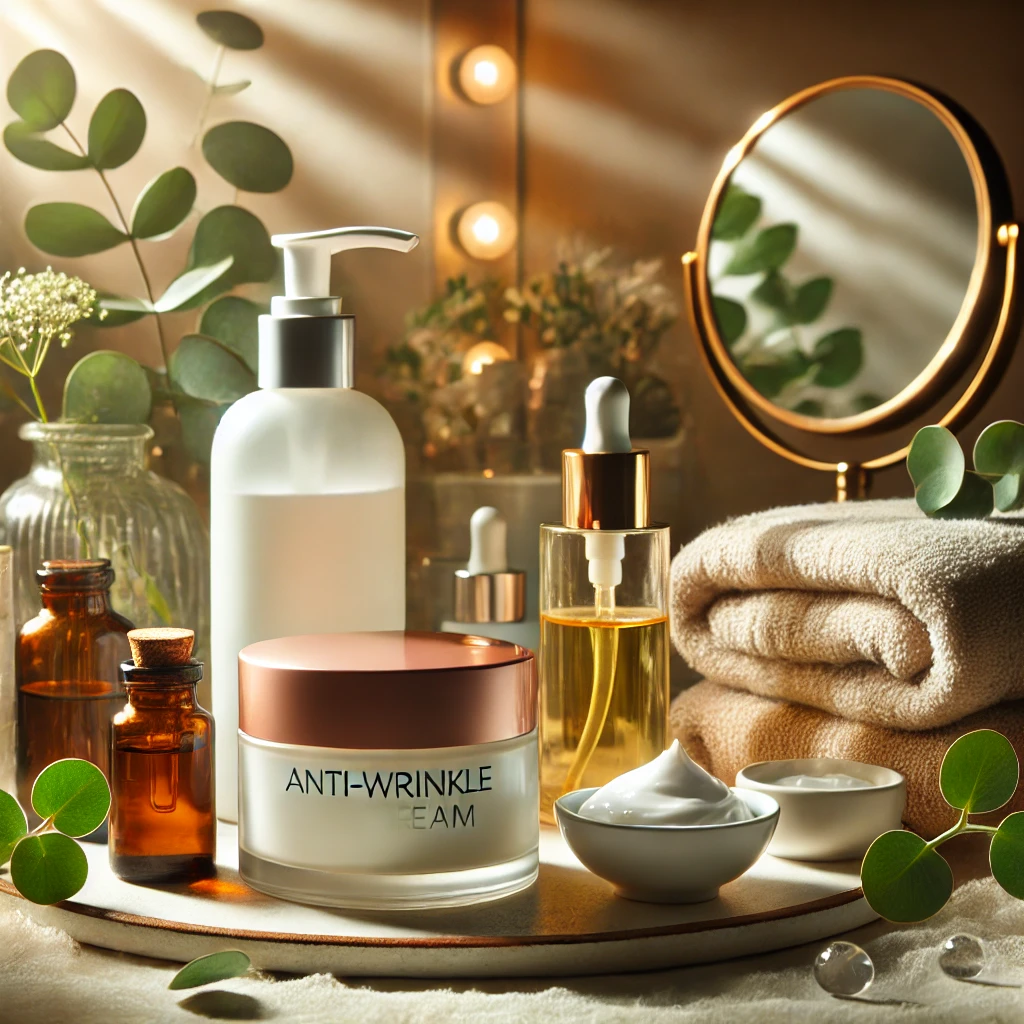
Wrinkles form as a result of several internal and external factors, most of which revolve around the aging process and environmental damage. As we age, our skin undergoes natural changes:
- Loss of Collagen and Elastin: Collagen provides structure to your skin, while elastin keeps it stretchy. Over time, the production of these proteins slows down, leading to thinner, less resilient skin.
- Reduced Skin Moisture: As we age, our skin produces less natural oils, leading to dryness and making lines more pronounced.
- Sun Damage (Photoaging): Prolonged exposure to UV rays damages skin cells, breaking down collagen and elastin, which accelerates aging.
- Repetitive Facial Expressions: Smiling, frowning, and other expressions create grooves in the skin. Over time, these grooves become permanent wrinkles.
- Environmental and Lifestyle Factors: Pollution, smoking, poor diet, and lack of sleep contribute to premature aging by increasing oxidative stress.
Imagine your skin as a fresh piece of paper. Over time, folds and creases form when the paper is used repeatedly. Wrinkles are much the same—a natural part of life that can be minimized with proper care.
3. How Anti Wrinkle Creams Work
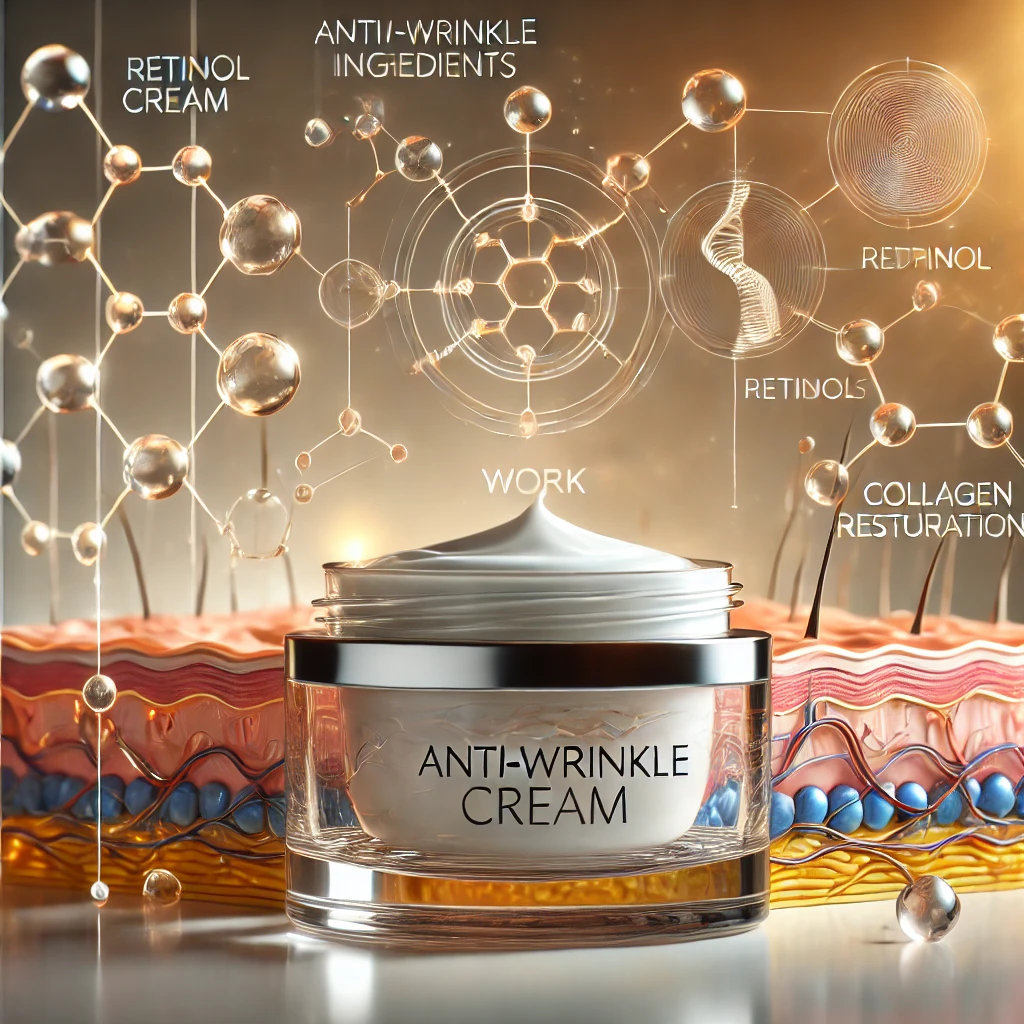
Anti-wrinkle creams target wrinkles by addressing the key factors that cause them. Their effectiveness lies in the combination of ingredients and how they interact with your skin’s natural processes. Here’s how they work:
- Boost Collagen Production: Ingredients like retinol and peptides stimulate the skin to produce more collagen, which strengthens its structure and reduces sagging.
- Hydrate the Skin: Dry skin makes wrinkles more visible. Anti-wrinkle creams contain moisturizing agents such as hyaluronic acid that plump up the skin and smooth out lines.
- Promote Skin Renewal: By increasing cell turnover, active ingredients help shed old, dull skin cells and replace them with newer, healthier ones.
- Provide Antioxidant Protection: Ingredients like Vitamin C and green tea extract neutralize free radicals, which can damage skin cells and accelerate aging.
- Sun Protection: Many anti-wrinkle creams include SPF to shield the skin from harmful UV rays, preventing further damage.
Think of these creams as repair teams for your skin, patching up damage, reinforcing weak areas, and safeguarding against future harm. While they can’t completely erase wrinkles, they significantly reduce their appearance and improve overall skin health.
4. Key Ingredients to Look For
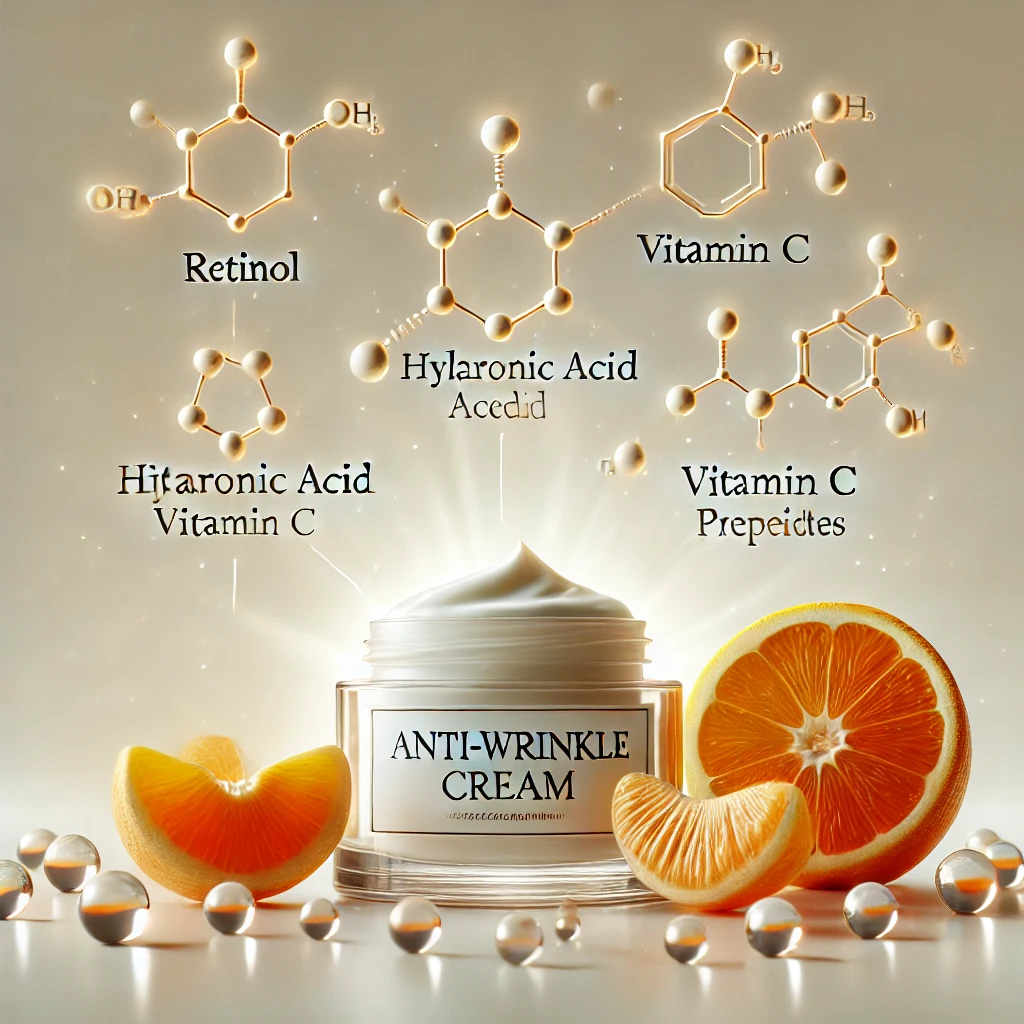
Choosing the right anti-wrinkle cream involves understanding its ingredients. The best creams are formulated with active components that tackle wrinkles at their source while enhancing skin health. Here are some key ingredients to keep an eye on:
- Retinol: A powerhouse ingredient derived from Vitamin A, retinol promotes cell turnover, smooths fine lines, and boosts collagen production. It’s a go-to for many dermatologists.
- Hyaluronic Acid: Known for its remarkable hydration properties, hyaluronic acid retains water in the skin, giving it a plump, youthful appearance.
- Peptides: These small chains of amino acids help repair damaged skin and encourage the natural production of collagen and elastin.
- Vitamin C: An antioxidant that brightens skin tone, reduces pigmentation, and protects against free radical damage.
- SPF: Sun protection is essential in any anti-wrinkle routine. UV rays are a major contributor to premature aging.
- Alpha Hydroxy Acids (AHAs): Gentle exfoliants like glycolic acid and lactic acid help remove dead skin cells, revealing smoother, fresher skin.
- Niacinamide: A form of Vitamin B3, it helps improve skin elasticity, enhances barrier function, and evens out skin tone.
When scanning a product label, think of these ingredients as the key players in a team working together to fight signs of aging.
5. Benefits of Anti Wrinkle Cream
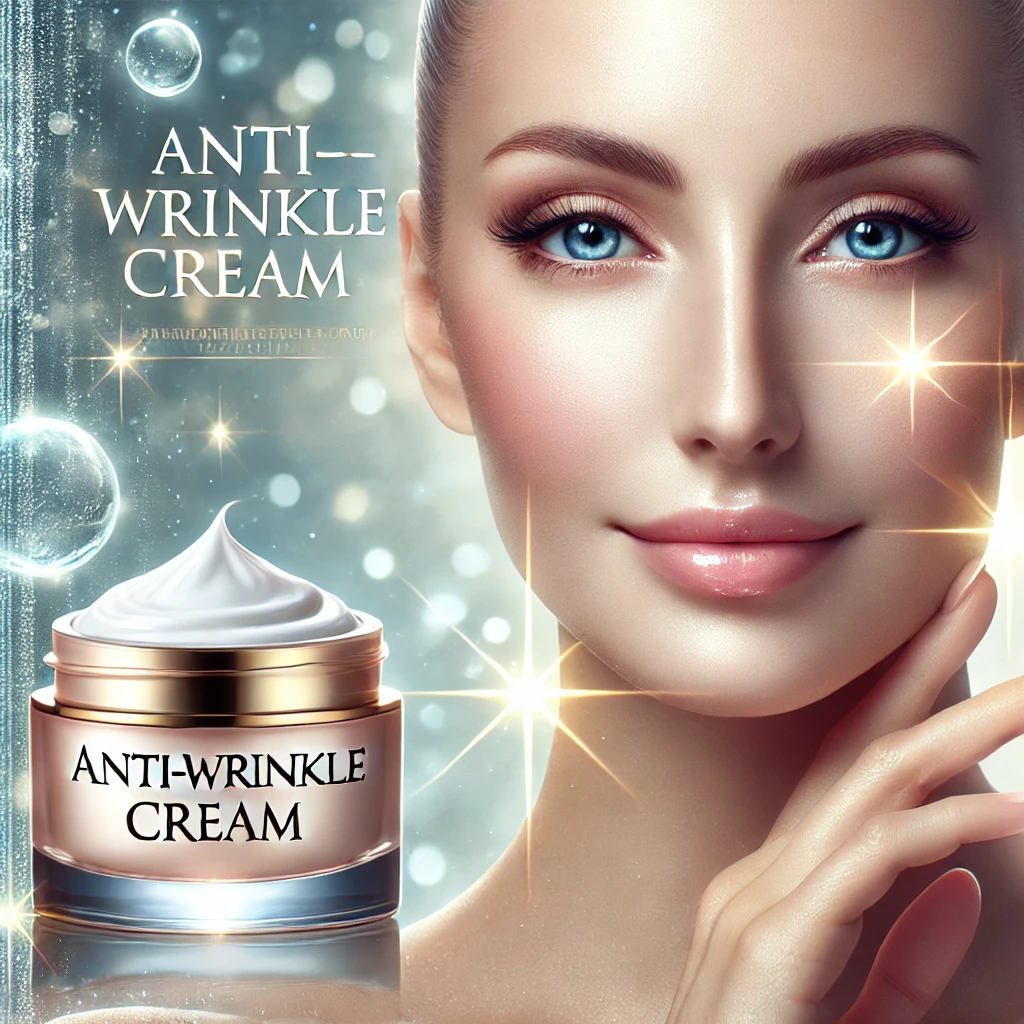
The benefits of anti-wrinkle creams extend beyond just wrinkle reduction. Here’s what makes them an essential part of any skincare regimen:
- Reduces the Appearance of Wrinkles: Active ingredients smooth fine lines and diminish deeper wrinkles over time.
- Hydrates the Skin: Many anti-wrinkle creams include moisturizing agents that restore the skin’s natural hydration levels.
- Improves Skin Texture: By promoting cell turnover, these creams leave your skin feeling soft, smooth, and rejuvenated.
- Brightens Complexion: Antioxidants and exfoliants reduce dark spots and uneven pigmentation, giving your skin a radiant glow.
- Boosts Confidence: A healthy, youthful complexion can make you feel more confident and empowered in your appearance.
- Prevents Further Damage: Creams with SPF and antioxidants act as a protective shield, preventing environmental stress from accelerating aging.
In essence, anti-wrinkle creams are not just for fixing; they’re for protecting, enhancing, and maintaining the beauty of your skin.
6. Types of Anti Wrinkle Creams
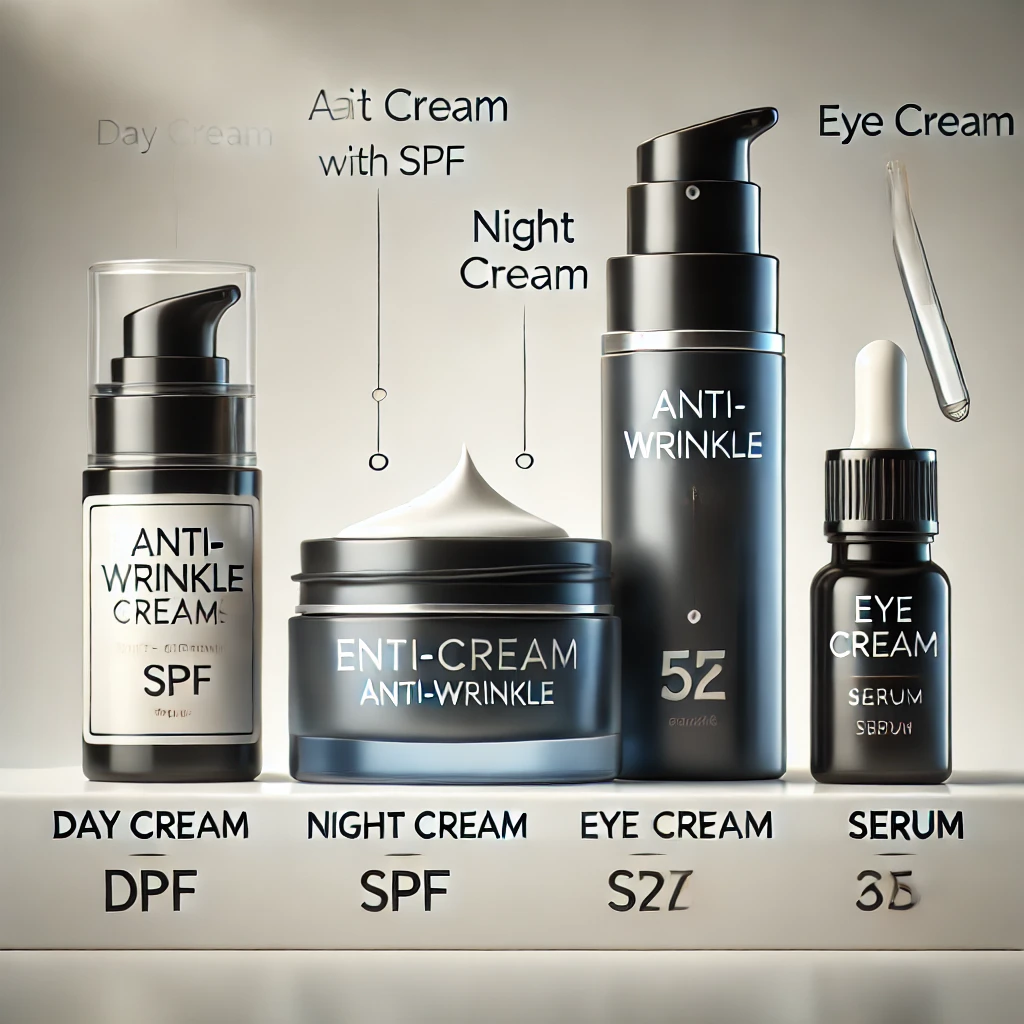
Anti-wrinkle creams aren’t one-size-fits-all. They come in various types, tailored to specific skin needs and concerns:
- Day Creams: Designed for daytime use, these are lightweight and often include SPF to protect against sun damage.
- Night Creams: Richer in texture, night creams focus on repair and regeneration while you sleep. They usually contain active ingredients like retinol that work best overnight.
- Eye Creams: The skin around your eyes is delicate and prone to wrinkles. Eye creams are formulated to be gentle yet effective in reducing puffiness and fine lines.
- Serums: Lightweight and highly concentrated, anti-aging serums penetrate deeply into the skin for maximum effectiveness.
- All-in-One Creams: These multifunctional products target multiple skin concerns, from hydration to wrinkle reduction, in one formula.
Knowing your skin type and concerns can help you select the most suitable type of anti-wrinkle cream for your routine.
7. How to Choose the Right Cream
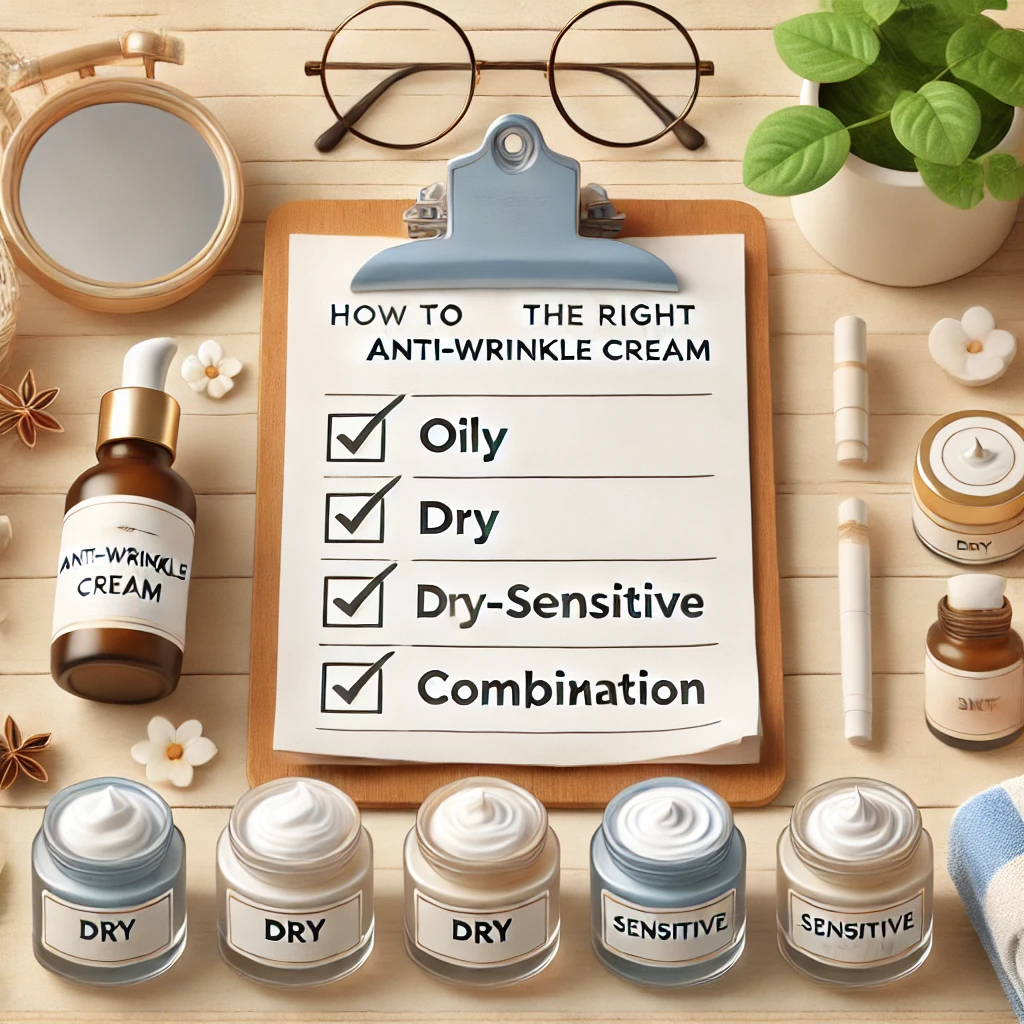
The beauty aisle can feel overwhelming with its endless rows of products claiming to erase years off your face. How do you choose the right anti-wrinkle cream? Here are some tips:
- Identify Your Skin Type: Is your skin dry, oily, sensitive, or combination? Choose a cream that caters to your specific needs.
- Understand Your Skin Concerns: Are you dealing with fine lines, deep wrinkles, or uneven texture? Look for targeted solutions.
- Check the Ingredients: Scan the label for proven anti-aging ingredients like retinol, peptides, and antioxidants. Avoid harmful additives like parabens and synthetic fragrances.
- Start Small: If you’re trying a new product, opt for a smaller size or sample to test its compatibility with your skin.
- Read Reviews: Other users’ experiences can provide valuable insights into a product’s effectiveness.
- Set a Budget: High-quality doesn’t always mean high-cost. Plenty of affordable options deliver excellent results.
Think of selecting an anti-wrinkle cream as a journey of discovery—one that leads you to healthier, more radiant skin.
8. Common Myths Debunke
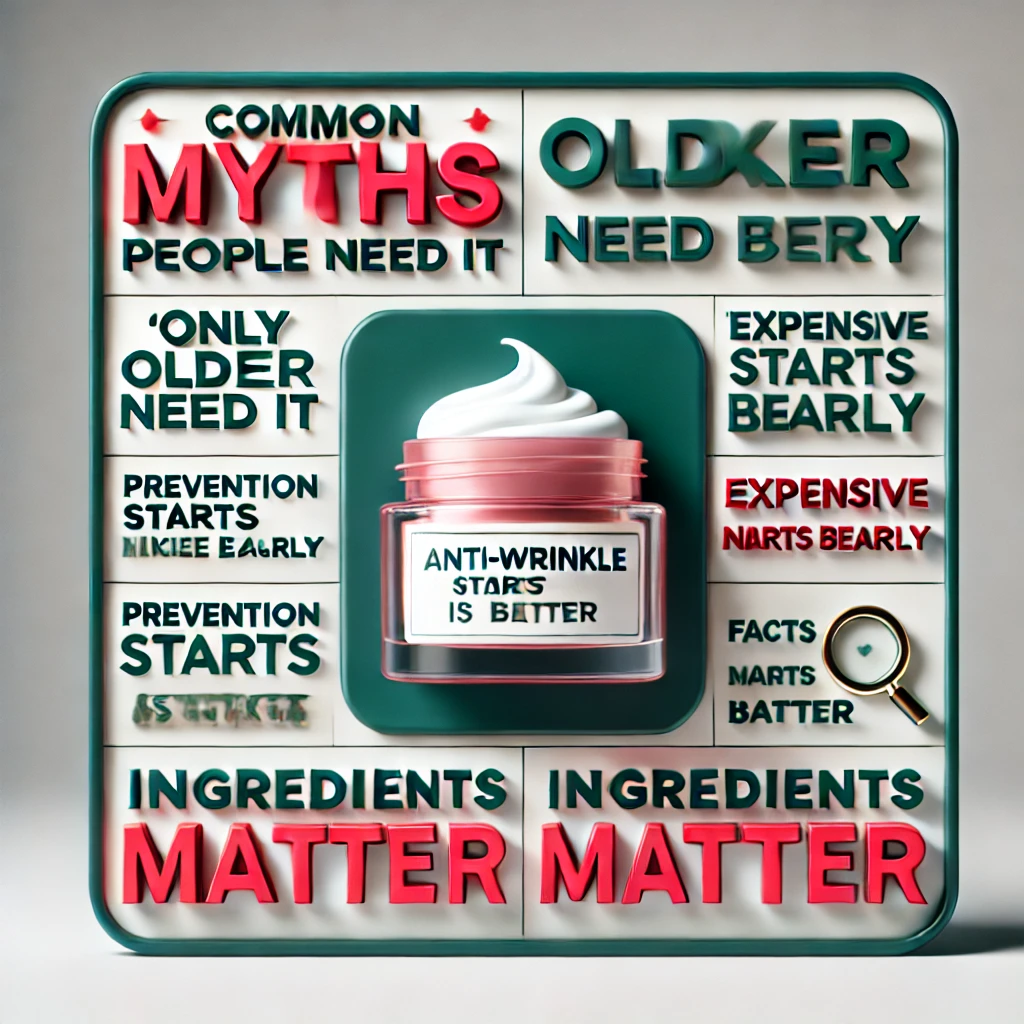
There’s no shortage of myths surrounding anti-wrinkle creams. Let’s set the record straight on a few:
- Myth: Anti-wrinkle creams are only for older people.
Fact: Prevention is better than cure. Starting in your 20s or 30s can delay signs of aging. - Myth: Expensive products work better.
Fact: Price doesn’t always equate to effectiveness. It’s all about the ingredients and how they suit your skin. - Myth: Natural ingredients are always safer.
Fact: While natural ingredients are great, some can cause irritation. Always test products before regular use. - Myth: You’ll see results immediately.
Fact: Anti-wrinkle creams take time to work. Be patient and consistent to see the best results.
Understanding the truth behind these myths helps set realistic expectations and ensures you choose products wisely.
By breaking down these sections, we’ve set the foundation for understanding anti-wrinkle creams, their benefits, and how they work. Let’s move forward to explore more practical tips and detailed insights!
9. DIY vs. Store-Bought Products
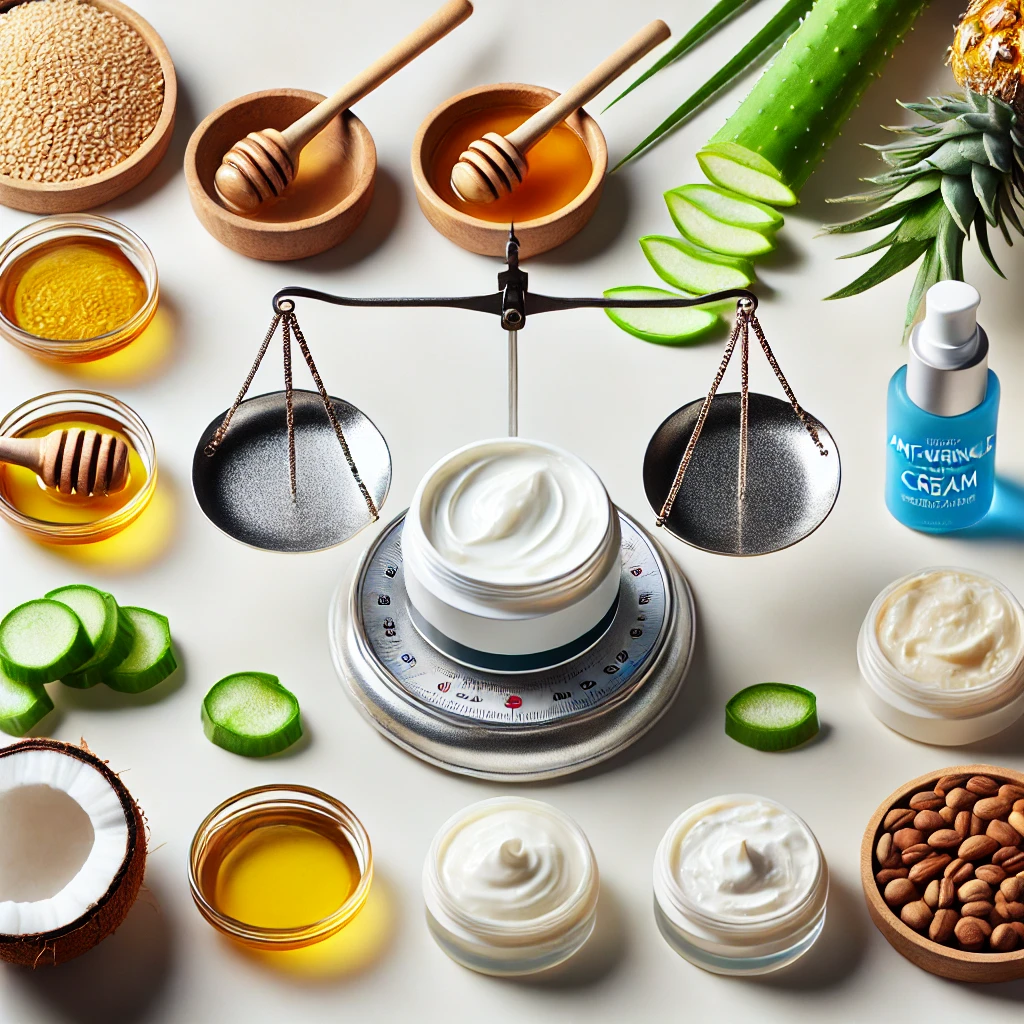
When it comes to anti-wrinkle treatments, some people swear by do-it-yourself (DIY) remedies, while others prefer professionally formulated store-bought creams. Each has its own pros and cons.
DIY Anti-Wrinkle Solutions
DIY remedies are often made from natural ingredients that you might already have in your kitchen. Here are a few popular options:
- Aloe Vera: Known for its hydrating and soothing properties, it can help improve skin elasticity.
- Honey: A natural humectant that locks in moisture and promotes healing.
- Coconut Oil: Helps to moisturize and repair the skin barrier.
- Green Tea: Its antioxidants combat free radicals, reducing premature aging.
Pros of DIY Remedies:
- Cost-effective and easy to make.
- No harsh chemicals or artificial additives.
- Great for those who prefer natural solutions.
Cons of DIY Remedies:
- Limited scientific evidence supporting their effectiveness.
- Time-consuming to prepare.
- Lack of consistent results compared to professionally formulated products.
Store-Bought Anti-Wrinkle Creams
These products are developed with extensive research and clinically proven ingredients that target specific skin concerns.
Pros of Store-Bought Creams:
- Backed by science and formulated for maximum efficacy.
- Offer a variety of ingredients tailored to different skin types and issues.
- Convenient to use and widely available.
Cons of Store-Bought Creams:
- Can be expensive.
- Some may contain allergens or irritants.
- Results may vary depending on the individual.
Which is better? It depends on your priorities. If you prefer simplicity and natural ingredients, DIY remedies are a good starting point. If you want targeted solutions with proven results, opt for a high-quality store-bought cream.
10. Tips for Maximizing Results
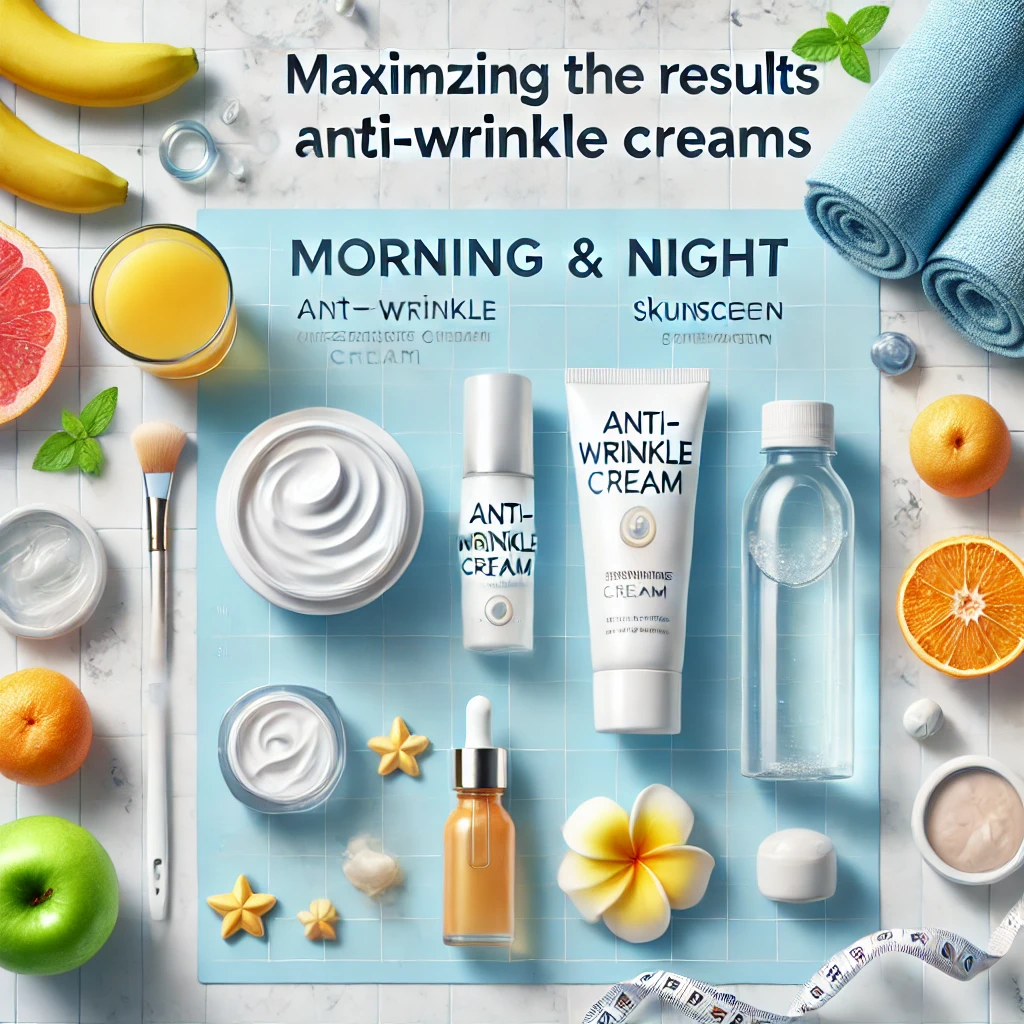
Using an anti-wrinkle cream is only part of the journey. To achieve the best possible results, consider incorporating these tips into your skincare routine:
- Be Consistent: Apply your cream daily, ideally in the morning and at night. Skincare is all about regularity.
- Apply to Clean Skin: Always cleanse your face before applying any product to ensure better absorption.
- Use the Right Amount: A pea-sized amount is usually enough. Overusing products can lead to irritation.
- Don’t Skip Sunscreen: UV rays are a major cause of wrinkles, so always use sunscreen during the day.
- Pair with a Healthy Lifestyle: A balanced diet, hydration, regular exercise, and adequate sleep all contribute to better skin health.
- Be Patient: Anti-wrinkle creams take time to show results—typically 4-8 weeks of consistent use.
- Layer Products Wisely: If you’re using other skincare products, apply the anti-wrinkle cream after lighter formulas like serums but before heavier moisturizers.
- Massage Gently: Use upward, circular motions to stimulate circulation and help the product penetrate deeper into your skin.
By following these tips, you’ll give your anti-wrinkle cream the best chance to work its magic.
11. Are There Any Side Effects?
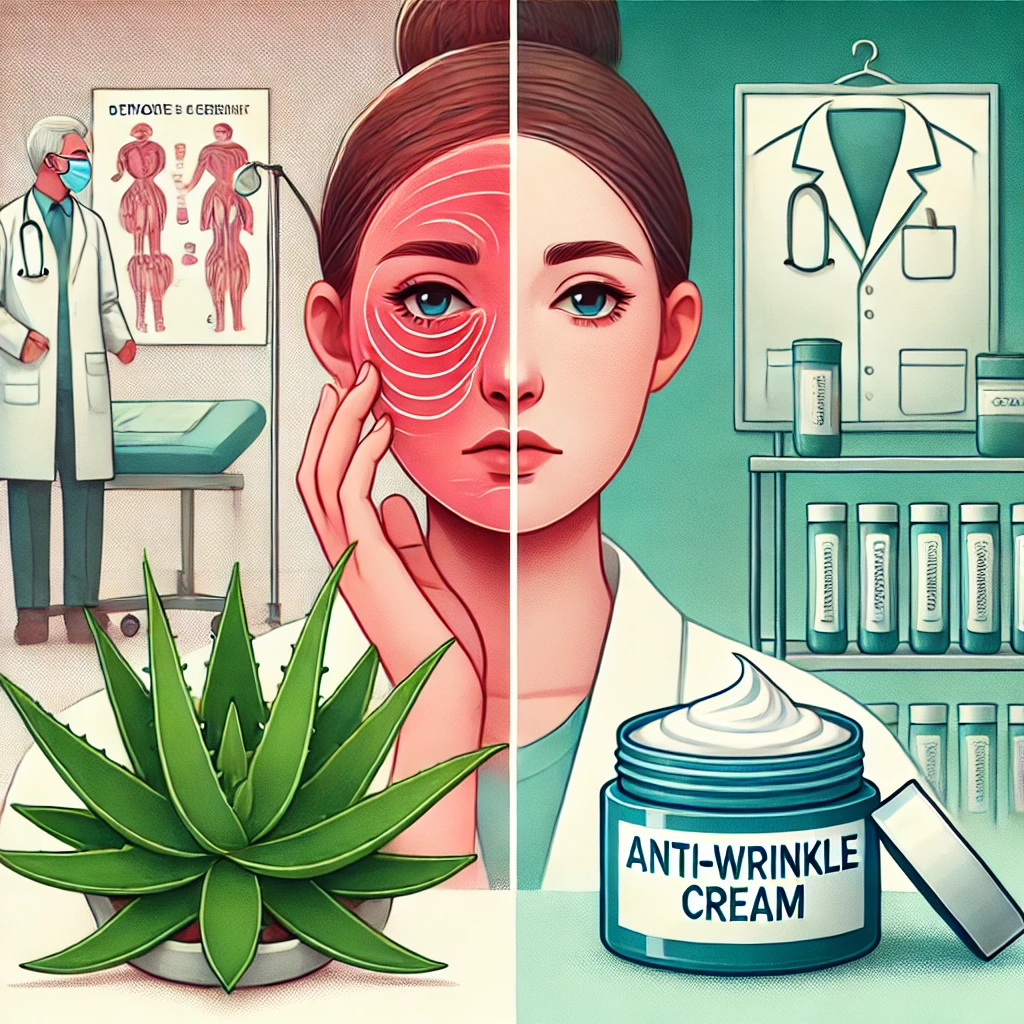
Like any skincare product, anti-wrinkle creams may cause side effects in some individuals. These reactions are often mild and temporary, but it’s important to be aware of them.
Potential Side Effects
- Redness and Irritation: Ingredients like retinol can sometimes cause redness, flaking, or sensitivity, especially for first-time users.
- Sun Sensitivity: Retinol and alpha hydroxy acids (AHAs) can increase sun sensitivity. Always pair these with sunscreen.
- Breakouts: Some people with oily or acne-prone skin may experience clogged pores or breakouts from richer creams.
- Allergic Reactions: Fragrances or preservatives in some products may trigger allergies.
How to Minimize Risks
- Patch Test: Apply a small amount of the cream to your inner arm or behind your ear to check for reactions.
- Introduce Slowly: Start using the product every other day and gradually increase usage.
- Choose Fragrance-Free Options: If you have sensitive skin, look for products labeled “fragrance-free” or “hypoallergenic.”
- Consult a Dermatologist: If you’re unsure about a product or have existing skin conditions, seek professional advice.
With proper precautions, you can enjoy the benefits of anti-wrinkle creams with minimal risk.
12. Popular Anti-Wrinkle Cream Brands
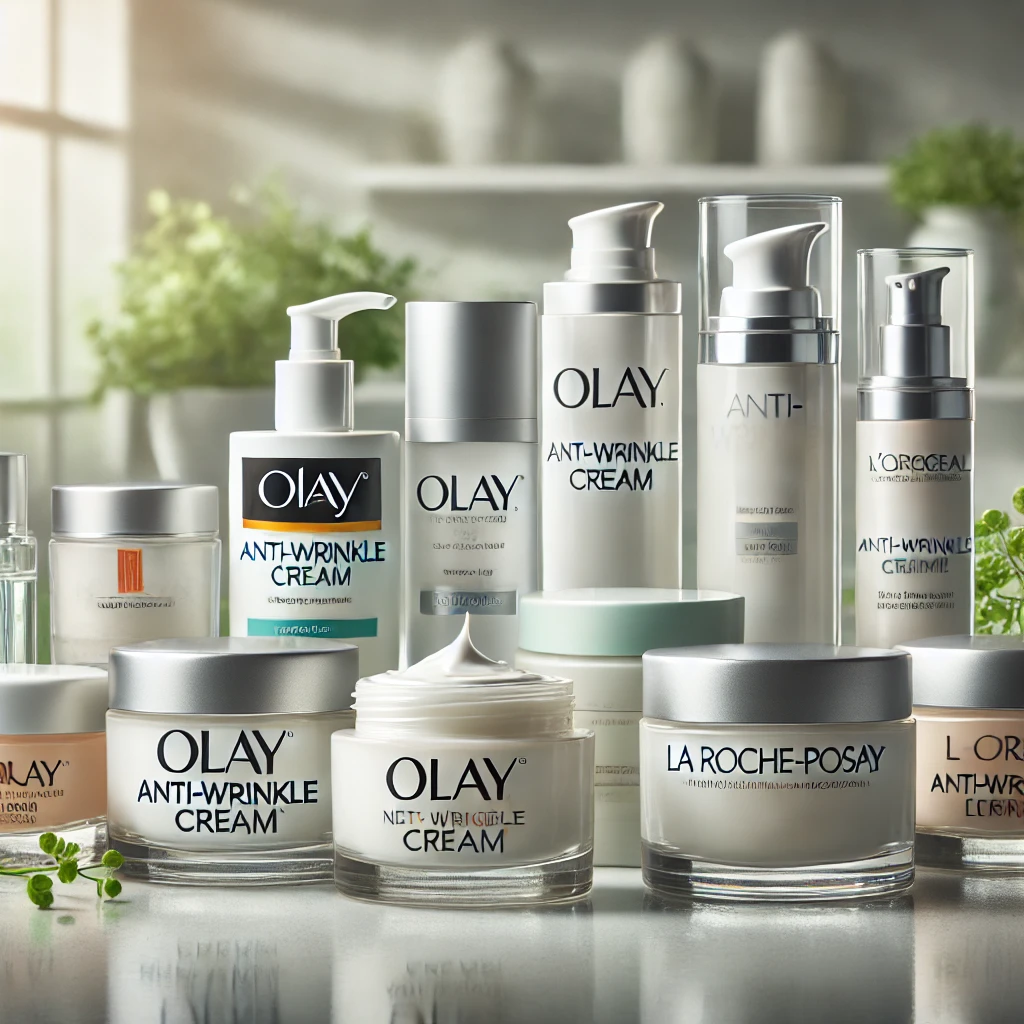
The market is brimming with anti-wrinkle creams, but not all are created equal. Here are some of the most trusted brands that consistently receive high praise for their effectiveness:
- Olay Regenerist: Known for its advanced anti-aging formulas, Olay is a favorite for affordable yet effective skincare.
- Neutrogena Rapid Wrinkle Repair: Formulated with retinol and hyaluronic acid, this line is widely recommended by dermatologists.
- L’Oréal Paris Revitalift: Offers a range of anti-aging products enriched with pro-retinol and peptides.
- La Roche-Posay Redermic: Combines dermatological expertise with gentle formulations, making it ideal for sensitive skin.
- The Ordinary: This budget-friendly brand offers concentrated, no-frills solutions like retinol serums and peptide creams.
Each of these brands caters to different skin types and budgets, so you’re bound to find one that suits your needs.
With these additional sections, you’re now equipped with a comprehensive understanding of anti-wrinkle creams—from their ingredients and benefits to tips for optimal use. Let’s continue to explore even more aspects in this exciting world of skincare!
13. Anti-Wrinkle Creams for Men
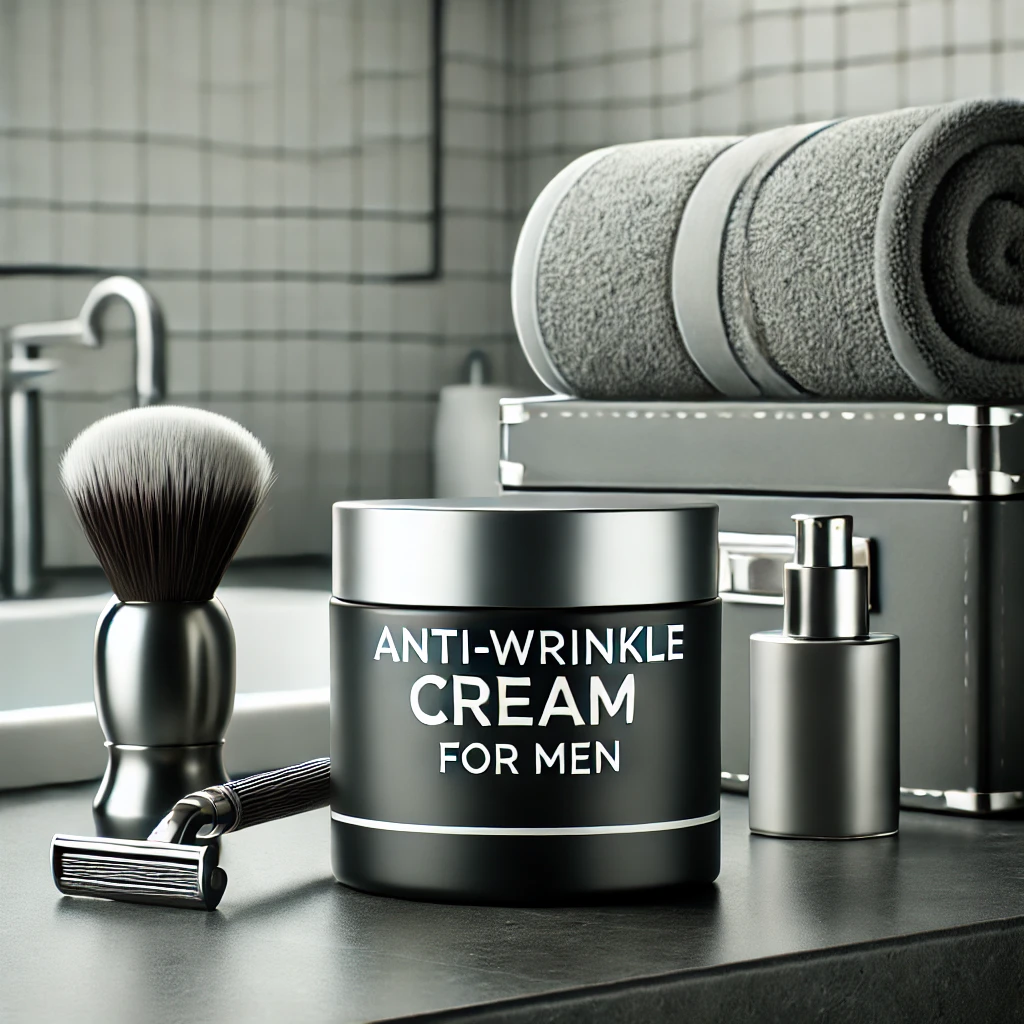
While skincare has long been marketed toward women, the demand for men’s products is rapidly growing. Men’s skin is different—it’s generally thicker, oilier, and often exposed to shaving-related irritation. Anti-wrinkle creams tailored for men cater to these specific needs.
Key Features of Men’s Anti-Wrinkle Creams:
- Higher Concentrations: Men’s thicker skin often requires more potent formulations to penetrate effectively.
- Lightweight Textures: Non-greasy formulas that don’t feel heavy on the skin are popular.
- Multi-Functional: Many creams for men combine anti-aging with other benefits, such as hydration or soothing post-shave irritation.
Popular Anti-Wrinkle Creams for Men:
- Kiehl’s Age Defender Moisturizer: Targets fine lines while firming the skin.
- Bulldog Age Defence Moisturizer: Made with natural ingredients, this cream is budget-friendly and effective.
- Lab Series Max LS Power V Lifting Cream: A high-end option designed for visible skin tightening and wrinkle reduction.
Whether you’re new to skincare or looking to upgrade your routine, anti-wrinkle creams for men are a simple yet powerful addition to keep your skin looking its best.
14. Natural Alternatives
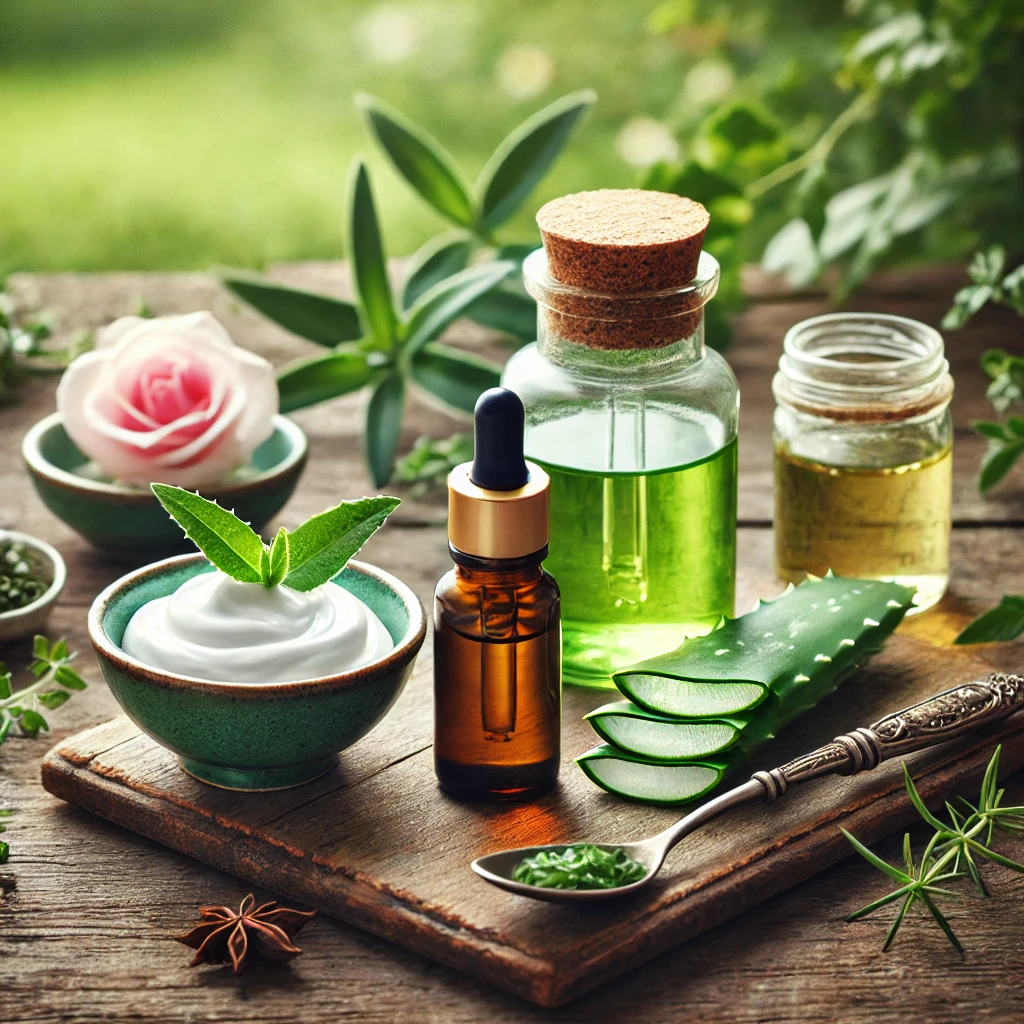
If you prefer to avoid synthetic ingredients, there are plenty of natural alternatives to anti-wrinkle creams that can help maintain youthful skin. These options often use plant-based components rich in antioxidants and vitamins.
Effective Natural Ingredients:
- Aloe Vera: Soothes and hydrates the skin while improving elasticity.
- Rosehip Oil: Packed with Vitamin A and essential fatty acids, it promotes skin regeneration and reduces wrinkles.
- Green Tea Extract: Its antioxidants fight free radicals, slowing down the aging process.
- Jojoba Oil: Mimics the skin’s natural oils, keeping it hydrated without clogging pores.
- Shea Butter: Deeply moisturizes and nourishes, making it ideal for dry skin types.
DIY Natural Remedies:
- Avocado Mask: Mash ripe avocado and apply it to your face. Rich in healthy fats and Vitamin E, it deeply moisturizes the skin.
- Honey and Yogurt Mix: Combine these two for an exfoliating and hydrating face mask.
- Cucumber Slices: Placed over your eyes, cucumber reduces puffiness and hydrates delicate skin.
Natural alternatives can be a great complement to or substitute for store-bought creams, especially if you value eco-friendly, chemical-free options.
15. Future of Skincare and Anti-Wrinkle Creams
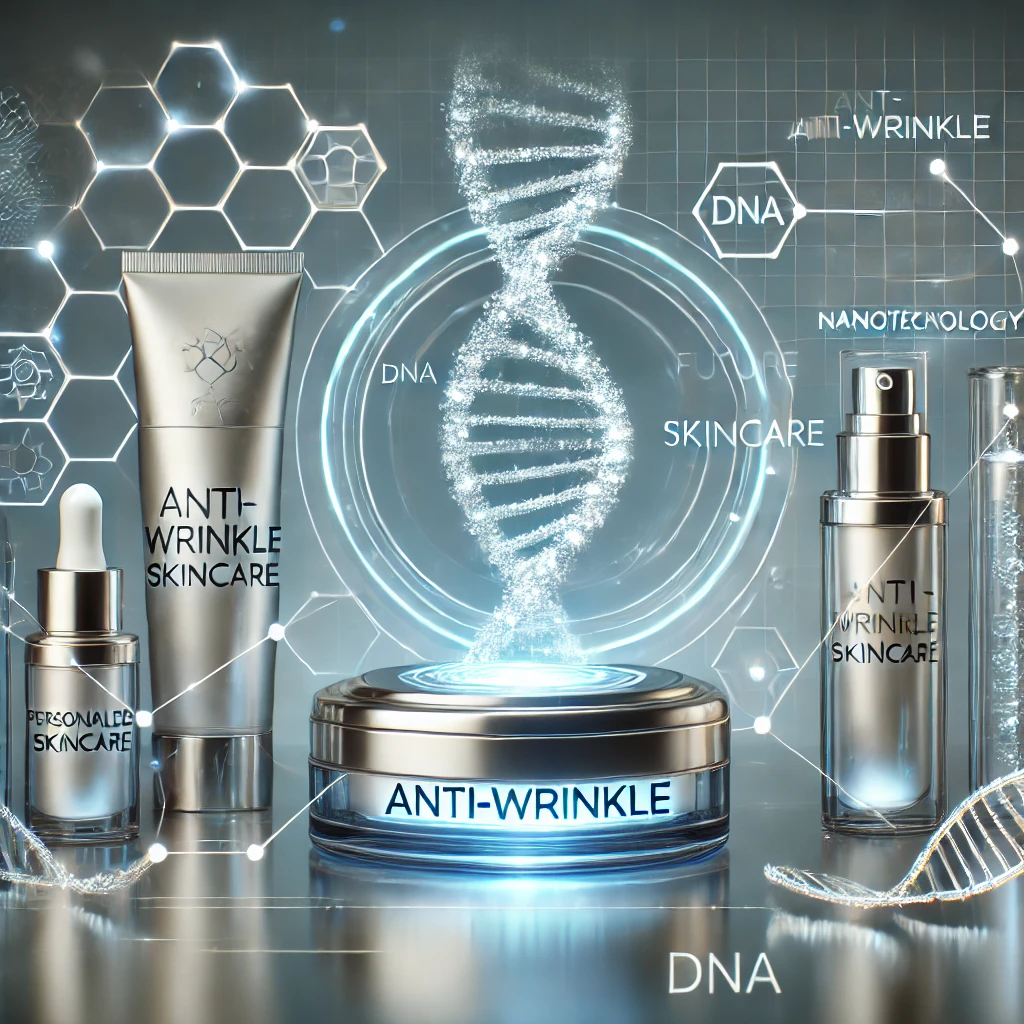
The skincare industry is constantly evolving, with exciting innovations that promise to revolutionize anti-aging products. Here’s a glimpse into what the future holds:
Personalized Skincare:
Imagine a cream customized specifically for your skin’s needs. With advancements in DNA testing and skin analysis technology, personalized products are becoming more accessible. These creams will cater to your unique genetics, lifestyle, and environmental factors.
Nanotechnology:
Nanotechnology is paving the way for more effective delivery systems. By creating smaller molecules, active ingredients can penetrate deeper into the skin, enhancing their effectiveness.
Sustainable Formulations:
Eco-conscious consumers are driving demand for sustainable, cruelty-free products. Future anti-wrinkle creams will focus on biodegradable packaging and ethically sourced ingredients.
AI-Powered Skincare:
Artificial intelligence is transforming skincare consultations. Apps and devices can analyze your skin and recommend the perfect anti-aging routine based on real-time data.
Regenerative Ingredients:
The future may also see breakthroughs in regenerative medicine, such as peptides and stem-cell-derived components that repair skin at the cellular level.
The possibilities are endless, and these advancements will likely make anti-wrinkle creams even more effective and accessible.
Conclusion
Wrinkles are a natural part of life, but they don’t have to define how you look or feel. Anti-wrinkle creams offer a powerful tool for reducing signs of aging and promoting radiant, healthy skin. Whether you’re exploring natural remedies, trying cutting-edge formulations, or sticking to a consistent skincare routine, the key is finding what works best for you.
Remember, aging gracefully doesn’t mean giving up on self-care. It means embracing your unique beauty while taking steps to maintain the health of your skin. With the right anti-wrinkle cream and some patience, you can keep your skin looking vibrant and youthful for years to come.
FAQs
1. Can I use anti-wrinkle cream if I have sensitive skin?
Yes, but choose a cream labeled for sensitive skin and free of irritants like fragrances or alcohol. Always do a patch test first.
2. How long does it take to see results from anti-wrinkle cream?
Most creams show noticeable improvements within 4-8 weeks of consistent use. Results may vary depending on the product and your skin type.
3. Is anti-wrinkle cream safe to use every day?
Yes, most creams are formulated for daily use. However, start with a small amount to see how your skin reacts.
4. Do anti-wrinkle creams work for deep wrinkles?
While they can improve the appearance of deep wrinkles, creams are most effective at preventing and reducing fine lines. For deeper wrinkles, professional treatments may be needed.
5. Can I use anti-wrinkle cream with other skincare products?
Yes, but apply it after lighter products like serums and before heavier moisturizers or sunscreens to maximize effectiveness.
By incorporating these insights into your skincare routine, you’re well on your way to achieving youthful, glowing skin.
